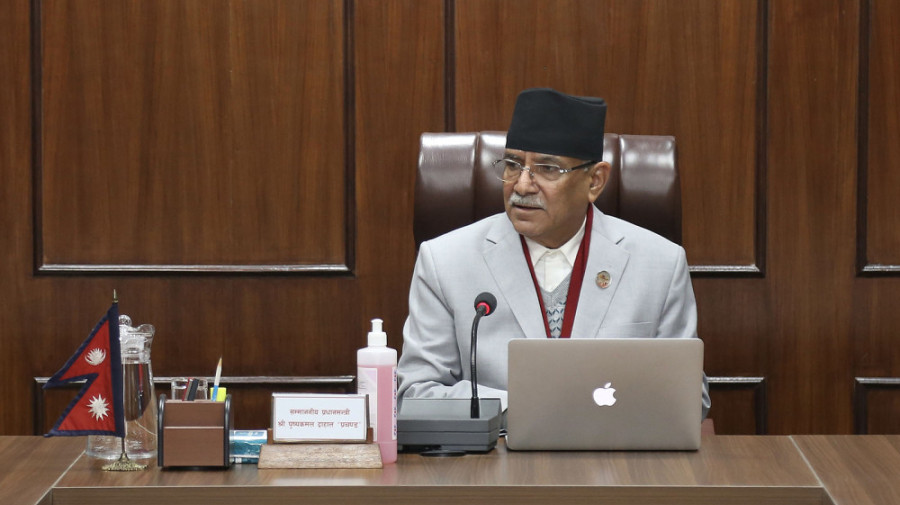Politics
Prime Minister Dahal steps up effort to win confidence vote and for expanding cabinet
Coalition partners start lobbying for attractive ministerial berths with the prime minister starting negotiations for power sharing.
Tika R Pradhan
With the elections of the President and the Vice President, the prime minister is now geared up to give a full shape to his Cabinet where two-thirds of the seats have been vacant since the CPN-UML, Rastriya Swatantra Party and Rastriya Prajatantra Party pulled out of the government last month.
The prime minister is currently holding 16 of the total 21 ministerial portfolios. Prior to the Cabinet expansion, the prime minister will go for a floor test in Parliament on Monday.
Dahal has started discussions with top leaders of the coalition, including Nepali Congress President Sher Bahadur Deuba and CPN (Unified Socialist) chair Madhav Kumar Nepal.
After Friday’s meeting, Nepal said the prime minister will expand his Cabinet soon. He, however, said the three leaders didn’t dwell on the ministerial allocations and that the issue of power-sharing would be discussed only after the prime minister’s trust vote on Monday.
On Friday, Dahal had told reporters that he would give a full shape to his Cabinet within four days of securing the vote of confidence.
A five-member Cabinet is currently overseeing the government. Besides Prime Minister Dahal, four ministers including one deputy prime minister and one state minister are in charge of the administration. Abdul Khan, water supply minister from Janamat Party, is the sole non-Maoist member in the Cabinet after the three other parties quit government.
Manahari Timilsina, a media expert to the prime minister, said the prime minister has begun negotiations with other parties for the Cabinet expansion, which he wants to do without further delay.
Three fringe parties—Janamat, Loktantrik Samajbadi and Nagarik Unmukti—that formed a separate alliance ahead of the vice-presidential election and fielded their own candidate, sparked questions over the future of the 10-party alliance. The Rastriya Swatantra Party hasn’t withdrawn its support to the government even after its ministers quit the Cabinet, it decided to vote for the Janamat Party’s Vice President candidate.
Senior vice-chair of CPN (Unified Socialist) Rajendra Pande said it was his party’s turn to choose attractive ministerial portfolios as other three parties have already bagged top positions—President by Nepali Congress, Vice President by the Janata Samajbadi and the prime minister by the Maoist Centre. According to leaders involved in negotiations, the ruling leaders have also reached an understanding to allow Unified Socialist chief Madhav Nepal to lead the government for one year after Dahal completes two years at the helm.
The three-party alliance of Janamat, Loktantrik Samajbadi and Nagarik Unmukti parties aims for collective bargaining with the major coalition partners in power-sharing.
“Only the Janata Samajbadi with just 12 seats in Parliament has been getting all the benefits,” said a senior Loktantrik Samajbadi leader, asking not to be named. “We three parties commanding 14 seats in the House will now jointly lay claims to better ministries and constitutional positions.”




 18.12°C Kathmandu
18.12°C Kathmandu















